In a world of food fads, this is why the real French baguette reigns supreme
The French stick is more than just a national cliché; it’s a tradition, a culinary art and an inalienable right.
The baguette is a unique French icon. It would be gauche, however, to compare this humble yet noble loaf to a film star, a king or a celebrated artist because its appeal lies in its perfection of ordinariness. In this way this stick of bread, which typically measures about 65cm in length, is also a design classic in a slender pantheon.
It is a robust and unchanging doughy redoubt in a world in which fads and fashion have eagerly sought to reinvent the culinary wheel and deconstruct the gastronomic classics so that we can all, à les Américains, have an order of everything on the side. But no: the baguette offers a reassuring shrug. It is what it is. The traditional baguette is made from wheat flour, water, salt and yeast. It’s the sort of culinary product that contains so few ingredients that its elements have nowhere to hide in its making and then in the final, joyous eating. The boulangers apply their scrutiny and formidable skills to these constituent parts, which come under some 230c of heat.
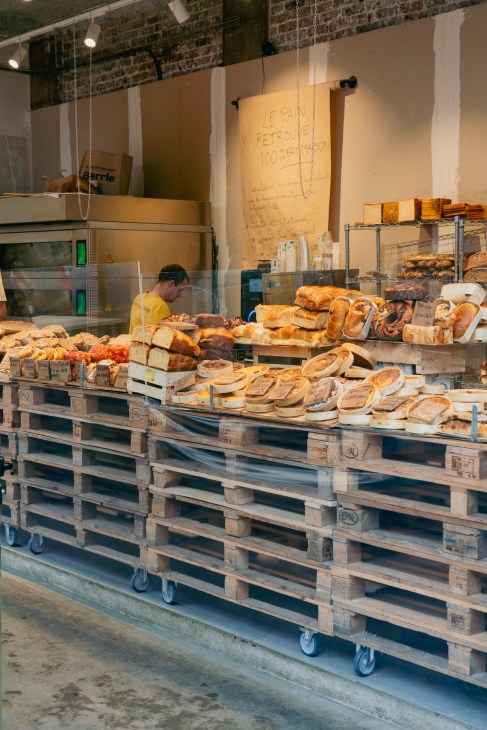
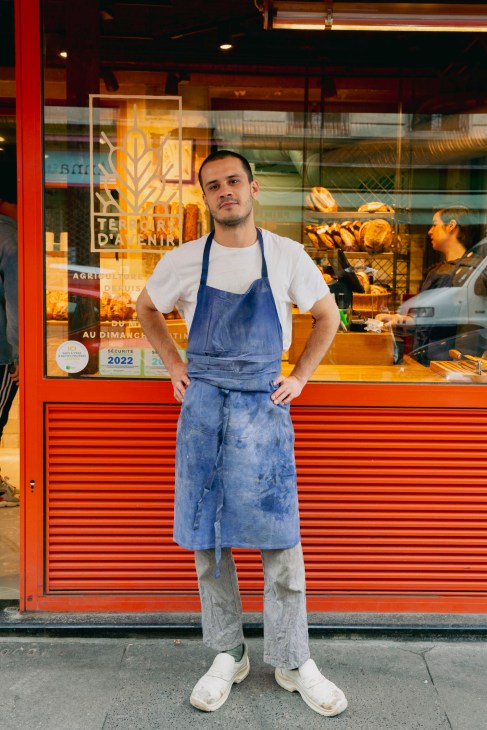
The baguette de tradition Française has made a considerable comeback in this era of people wondering whether factories – which we all agree are fine for building cars, say, or computers – might not be the best places to make food. So the additives, preservatives and general nonsense that prevail in some baguettes are derided rather than devoured by the artisan bakers of France and their millions of hungry devotees. Glance at the list of ingredients, say the bakers. If it seems too long, then it most certainly is.
The baguette is also emblematic of larger ideas that the French hold dear. It is something of a human right. It is the daily bread of the Lord’s Prayer, the staff of life. It is simple enough to be perfect for breakfast, lunch or dinner too, adept at being the vehicle to deliver your beurre sel et confiture or a happily messy slice of chaource cheese. But it will probably still emerge as the star.
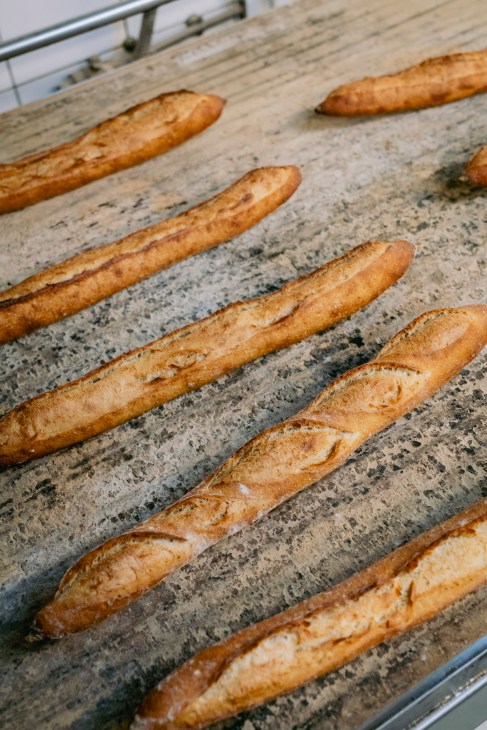
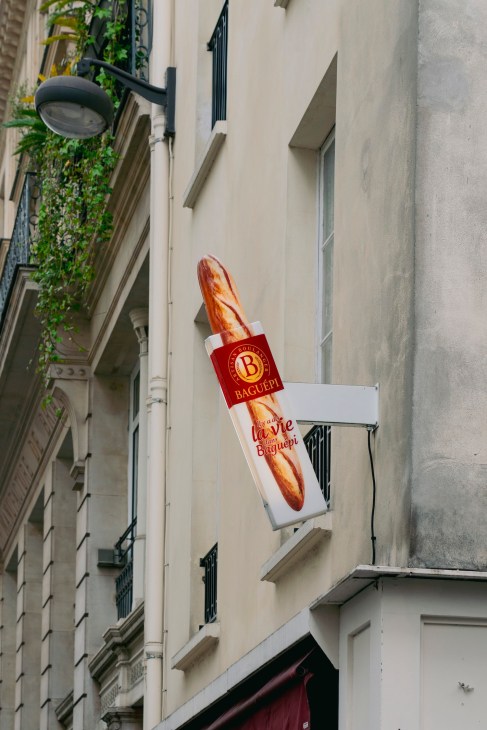
The baguette’s status as a national staple has unsurprisingly been enshrined by a country that knows what it is good at and what is good for it. In 1920, France put in place a price cap to ensure that everyone could eat it; this was only lifted in 1987 but the belief in people’s inalienable right to a baguette endures.
In recent years of energy price rises and Europe-wide inflation, the baguette has become something of an economic bellwether. News crews and researchers in France scrutinise it, while wags overseas find it mildly amusing that – of course – they’re up in arms about French sticks.

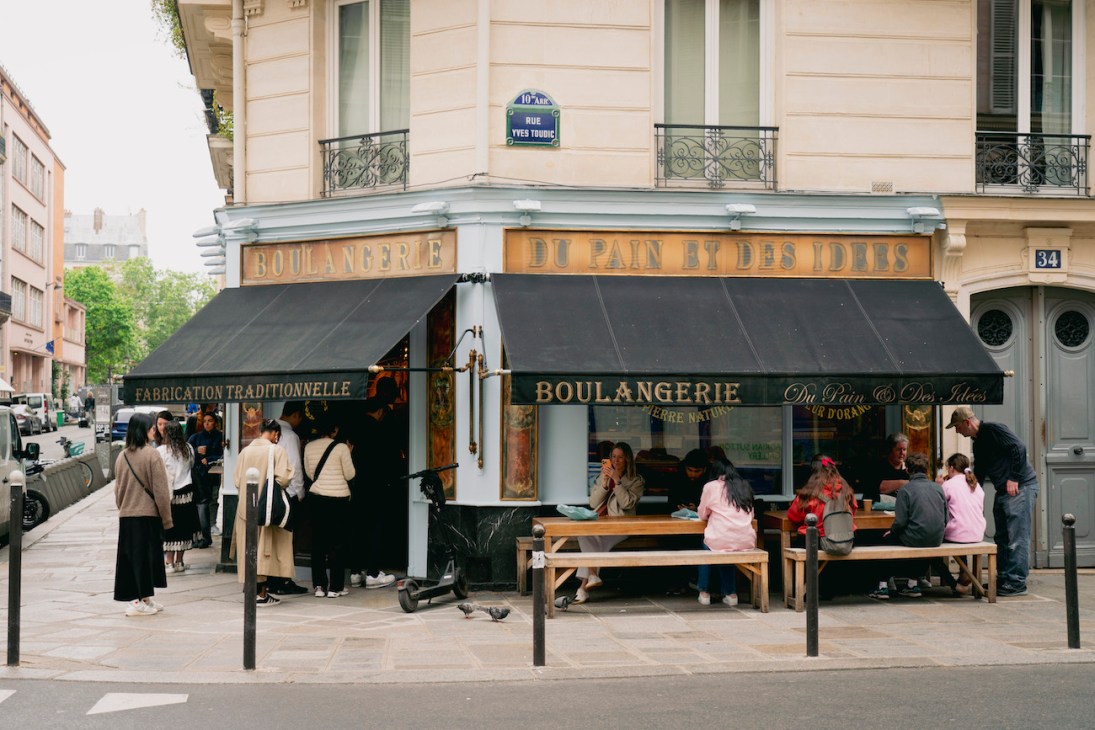
In Paris, as in the rest of the country, you can pick up a baguette for less than €1 at a supermarket. The chances are that it’ll be a slightly saccharine flute – edible but nothing special. Instead, you should visit a boulangerie and ask for un tradition. For the slightly higher cost of about €1.30, you will receive in your hand what Emmanuel Macron once described as “250g of magic and perfection” (what a relief it is that he didn’t choose to measure its qualities by length). That’s a small price to pay for the keys to an unimprovable culinary kingdom. The baguette, simple yet highly effective, is a great leveller.
Out and about in Paris, hungry and with an eye on the culture of the boulangerie – particularly the status of the baguette in a city well known for its deathless traditions and nimble transformations – Monocle walked and saw and ate and asked. Bakers told us how they bake it; customers described to us how they eat it and when. We learned about the daily ritual of the boulangerie visit to purchase le pain quotidien, that secular sacrament, that bastion, that baguette.
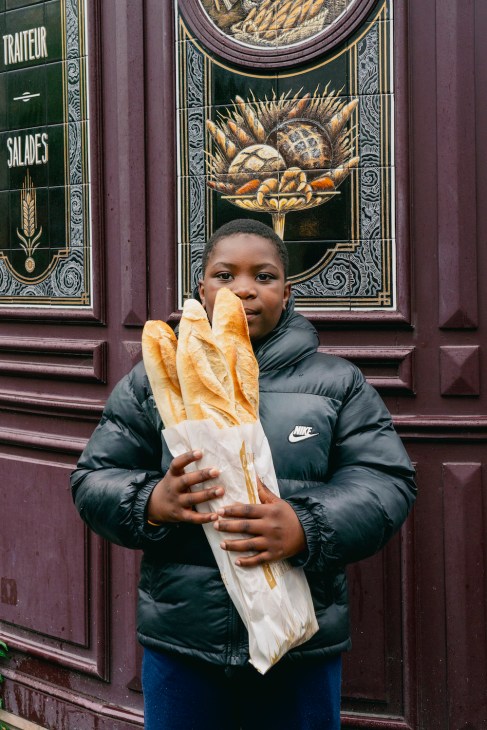
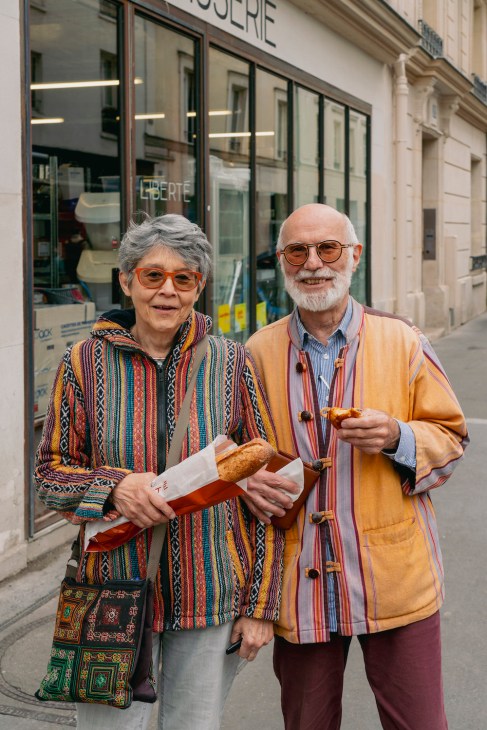
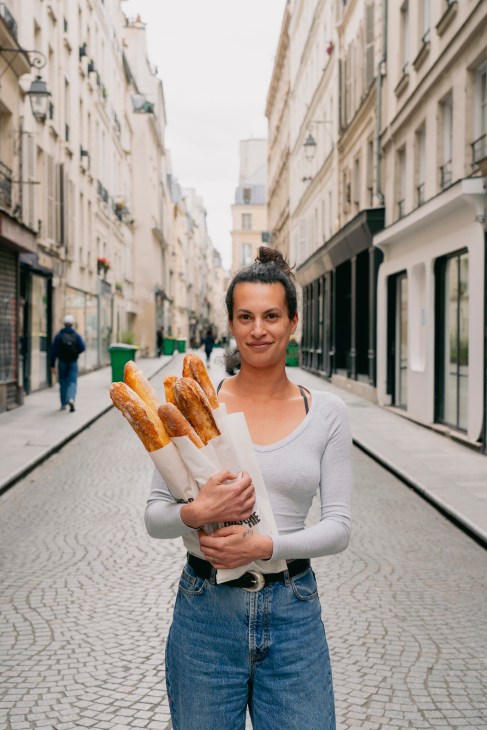
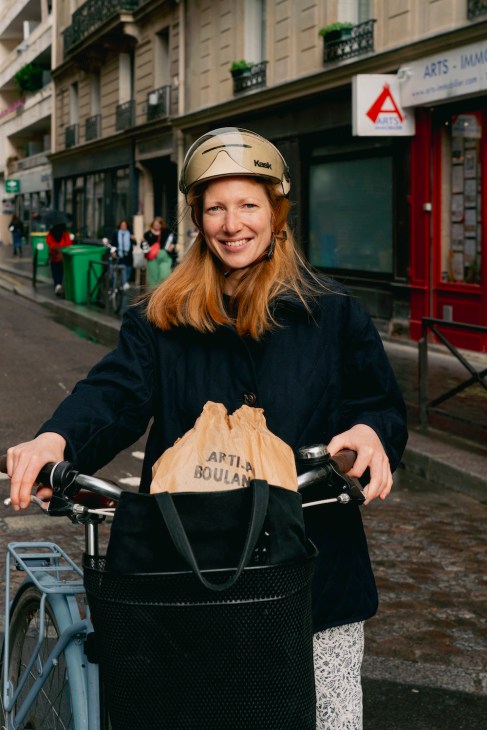
Three of the best bakeries in Paris
Du Pain et des Idées
This bread-making, bread-breaking shop was opened in 2002 in a boulangerie that dates back to 1875 by Christophe Vasseur, who is something of a saint in Paris’s cloistered world of contemporary bakers. Vasseur offers bread, patisserie and a little viennoiserie – the key to the latter being a flaky finish achieved with 30 hours of fermentation. Just 60 baguettes a day are made here for the delectation of quick-moving flute-fanciers.
dupainetdesidees.com
Union Boulangerie
Maëva Manchon and Charles Ye were studying neuroscience and finance, respectively, when they decided to quit to get their hands dusty baking bread. “We had one chance to do what we really wanted,” says Manchon. Their first bakery, which opened in 2021, is a stripped-back, naturally lit corner plot in the 9th arrondissement that satisfies office workers, well-dressed locals and cool dudes alike. (A second outpost will open later this year.) It bakes 500 baguettes a day. “I can count on one hand the days when we haven’t sold out,” says Manchon. The goods look heavenly on the bakery’s simple wooden or glass stands. “Why would we hide this stuff up on a shelf?” asks Ye. “We’re all about transparency and quality. We have nothing to hide.”
instagram.com/unionboulangerie
Terroirs d’Avenir Boulangerie
Delphine Pereira runs four bakeries in Paris for the much-admired Terroirs d’Avenir food-shop chain, which was co-founded by Alexandre Drouard and Samuel Nahon. “We have all loved baguettes since we were children,” says Drouard. “We love to eat them while they’re still warm so the crust is still crunchy and the crumb is soft and airy.”
When Monocle visits the company’s Rue du Nil bakery, the hum of machines is nowhere to be heard. “We prepare our baguettes entirely by hand, without machines for dividing or shaping,” says Drouard. “It’s a skill that has almost disappeared.” In what must be an endurance trial for the bakers, between 300 and 500 baguettes are mixed, cut and kneaded a day at every one of Terroirs d’Avenirs’ four boulangeries. We’re expecting its workout regime to hit the internet very soon.
terroirs-avenir.fr


